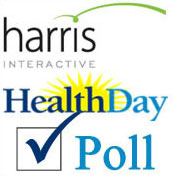
TUESDAY, Jan. 8 (HealthDay News) — The popularity of “walk-in” medical clinics located in pharmacies, superstores and workplaces nationwide is increasing rapidly, according to a new Harris Interactive/HealthDay poll.
Twenty-seven percent of all adults surveyed said they have used either walk-in retail clinics (19 percent) or work-based clinics (11 percent) to obtain medical care in the past two years. That’s up from just 7 percent in 2008.
“This survey shows a very large increase in the numbers of people using retail clinics over the last few years since earlier surveys, which used slightly different questions,” said Harris Poll chairman Humphrey Taylor.
Younger adults were more likely to have used such a facility compared with older adults. Among the respondents, 40 percent of adults aged 25 to 29 had used a retail or work-based clinic, versus only 15 percent of adults aged 65 and older.
This is not surprising, given that older adults tend to have more chronic health problems and such “drop-in” clinics are geared more for acute services, said Kathleen Jaeger, a registered pharmacist and senior vice president of pharmacy care and patient advocacy at the National Association of Chain Drug Stores.
The survey found that people were most likely to visit either a retail or work-based clinic for run-of-the-mill complaints such as colds or flu-like symptoms, minor cuts and wounds, and for routine needs such as flu shots, prescriptions and to check blood pressure or cholesterol.
Fewer respondents indicated willingness to use these clinics for potentially more serious concerns.
Survey respondents who had used such a clinic were generally happy with the care they received, although fewer than half said they were “extremely” or “very” satisfied.”
Notable minorities — 18 percent of those who had used retail clinics and 27 percent of those who had used work-based clinics — said they were only “somewhat” or “not at all” satisfied.
About three-quarters of those who had used a clinic were covered by their insurance when they used the service.
The online survey of more than 3,000 U.S. adults was conducted in early December.
Convenience was key to consumers opting for retail clinic care. The most frequent reasons cited for using either a retail or work-based clinic was that the clinics didn’t require an appointment, had a convenient location, involved short waiting times, had accessible hours, and were affordable and/or accepting of the person’s particular insurance.
“It’s really that combination of quality, accessibility and affordability that’s driven the growth of these clinics and the utilization of the clinics,” said Web Golinkin, board president of the Convenient Care Association and CEO of RediClinic, which provides health care clinics at H-E-B grocery stores.
Also contributing to the growth is a continuing shortage of primary care physicians, added Jaeger.
Patricia McGaffigan, R.N., interim president of the National Patient Safety Foundation, said: “The proliferation of these clinics is helping to absorb a lot of health care issues. Many [health-related] episodes can, in fact, be treated and treated very well by folks who are trained and who are following evidence-based guidelines.”
There is accreditation for the clinics, she added, although a person’s primary care doctor should always be kept apprised of any visits to retail or workplace clinics.
The clinics also have the capability of taking care of marginal health issues that many people have inappropriately taken to emergency departments.
“With just over a quarter of all adults using either retail clinics or work-based clinics, they are now treating many millions of patients, many of whom might otherwise go to doctors’ offices, and some of whom might go to hospital emergency rooms,” said Taylor. “This is probably saving their health plans money, which explains why most of these patients’ care is covered by their insurance.”
According to the Convenient Care Association, the first retail-based convenient care clinic opened in the United States in 2000 and there are now more than 1,350 such clinics operating around the nation. MinuteClinic, which is found in CVS stores, has had 14 million patient visits since 2000.
More information
There’s more on how to communicate with your health care provider at the National Patient Safety Foundation.

